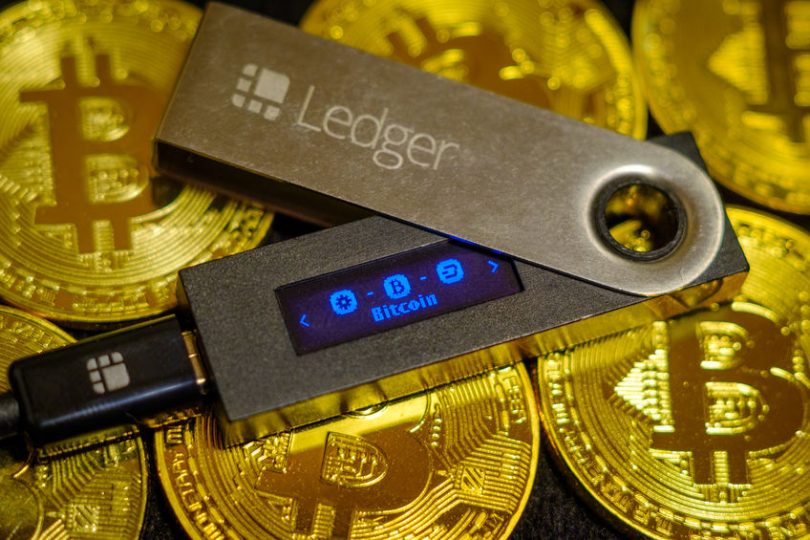In the world of cryptocurrency, a crypto wallet is a fundamental tool that allows users to store, manage, and interact with their digital assets. Whether you’re a seasoned investor or just starting your cryptocurrency journey, understanding how crypto wallets work is essential. This article provides a comprehensive overview of crypto Ledger Live, including their types, how they function, and best practices for securing your digital assets.
What is a Crypto Wallet?
A crypto wallet is a digital tool used to store and manage your cryptocurrency. Unlike traditional wallets, which hold physical currency like cash or cards, crypto wallets store the private keys necessary to access and control your cryptocurrency. A private key is a piece of data that enables you to sign transactions, proving ownership of your crypto holdings.
There are two main components of a crypto wallet:
- Private Key: The secret key that allows you to access and manage your cryptocurrency. It should be kept secure and private.
- Public Key: The address that others can use to send cryptocurrency to your wallet. Think of it like an email address that others can use to send you funds.
Types of Crypto Wallets
Crypto wallets come in different types, each offering varying levels of security, convenience, and accessibility. Broadly, they can be categorized into two main types: Hot Wallets and Cold Wallets.
1. Hot Wallets
Hot wallets are connected to the internet, making them highly accessible and convenient for frequent transactions. They are ideal for users who need quick access to their crypto assets. However, because they are online, they are more vulnerable to hacking and theft.
- Software Wallets: These wallets are applications or programs that can be installed on your computer or smartphone. Examples include Exodus, Electrum, and Trust Wallet.
- Web Wallets: These are browser-based wallets that can be accessed via the internet, such as MetaMask and Blockchain Wallet.
Pros of Hot Wallets:
- Fast and easy access to funds
- Convenient for day-to-day transactions
- Supports a wide range of cryptocurrencies
Cons of Hot Wallets:
- Higher risk of cyberattacks due to internet connectivity
- Less secure than cold wallets for long-term storage
2. Cold Wallets
Cold wallets, on the other hand, are not connected to the internet, making them much more secure from online threats. They are typically used for long-term storage of crypto assets and are often preferred by those holding significant amounts of cryptocurrency.
- Hardware Wallets: These are physical devices, such as Ledger and Trezor, that store private keys offline. Users connect them to their computers or mobile devices when they need to make transactions.
- Paper Wallets: These are physical documents containing your public and private keys. Paper wallets are often printed out and stored in a safe place.
Pros of Cold Wallets:
- Highly secure due to offline storage
- Less susceptible to online hacks and theft
- Ideal for long-term storage
Cons of Cold Wallets:
- Less convenient for frequent transactions
- Potential loss of access if the device or paper is lost or damaged
How Do Crypto Wallets Work?
Crypto wallets function by storing private and public keys in a secure manner. To send or receive cryptocurrency, you use your wallet to generate and sign transactions. Here’s how it works in practice:
- Receiving Funds: To receive cryptocurrency, you provide the sender with your public key (wallet address). The sender then initiates the transaction, and the funds are transferred to your wallet’s address.
- Sending Funds: To send cryptocurrency, you sign the transaction using your private key. The wallet broadcasts the signed transaction to the relevant blockchain network, where it is verified and processed.
- Transaction Confirmation: Once the transaction is confirmed by the network (via miners or validators, depending on the blockchain), the cryptocurrency is either debited from the sender’s wallet or credited to your wallet, depending on whether you’re sending or receiving funds.
Best Practices for Crypto Wallet Security
Given the importance of security in the world of cryptocurrencies, it’s crucial to take steps to protect your wallet. Here are some best practices:
- Use Strong Passwords: For wallets that require a password, ensure it is strong and unique. Avoid using easily guessable passwords like “123456” or “password.”
- Enable Two-Factor Authentication (2FA): Many wallets offer 2FA as an additional layer of protection. By enabling this, you make it much harder for hackers to gain access to your wallet.
- Backup Your Wallet: Make regular backups of your wallet’s private keys or seed phrases, and store them in a safe, offline location. This ensures you can recover your wallet if your device is lost or damaged.
- Be Cautious with Phishing: Beware of phishing attacks that attempt to trick you into revealing your private keys or seed phrases. Always double-check URLs and only interact with legitimate sources.
- Use Cold Storage for Long-Term Holdings: If you are not planning on actively trading your cryptocurrency, consider moving it to a cold storage solution for enhanced security.
